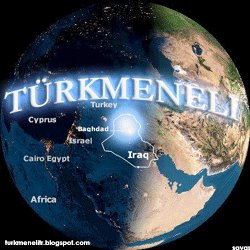A decision over the Iraqi prime minister position continues to impede the creation of a government three months after elections
Al-Ahram
As opposition within certain currents continued to grow over Iraqi Prime Minister Ibrahim Al-Jaafari being named to remain in office, more Iraqi forces have joined the chorus this week against Al-Jaafari's nomination. While Iraqi politicians continue to be deadlocked over the issue, sectarian violence with reprisal attacks against both Sunni and Shia continued unabated.
The Iraqi Accordance Front (IAF) -- the biggest Sunni bloc in the assembly -- have clearly now stated that its final decision is not to back Al-Jaafari's nomination. Dhafer Al-Ani, spokesperson for the IAF, reaffirmed Sunday the front's stand against Al-Jaafari. Al-Ani said the front suggested to the United Iraqi Alliance (UIA) -- the biggest Shia bloc in the assembly -- to propose other names for consideration. On Monday, the IAF forwarded a letter to Abdul-Aziz Al-Hakim, head of the UIA, notifying him that "they still have reservations about Al-Jaafari."
Similar statements were made by Kurdish officials who openly criticised Al-Jaafari's political performance, demanding that a new candidate be named by the UIA. Under the Iraqi constitution, the prime minister has to be a member of the bloc that holds the majority of seats in parliament. But there should also be a political consensus on the candidate from other forces sharing power.
The firm Sunni-Kurdish stand against Al-Jaafari prompted the UIA to enter a fresh round of internal talks to resolve the deadlock which has been the main stumbling block barring the formation of a national unity government months after parliamentary elections were held.
On Tuesday, the London-based Al-Hayat newspaper reported that a breakthrough had taken place when the young Shia leader Muqtada Al-Sadr, a staunch proponent of keeping Al-Jaafari, showed signs of backtracking on his support for Al-Jaafari. But there are differences of opinion over alternative names. The Sadrists stated clearly that they do not accept the nomination of Adel Abdul-Mahdi, whose name was put forward by the Supreme Council for Islamic Revolution in Iraq (SCIRI), one of the Shia forces under the umbrella of UIA. Karim Al-Bekhati, spokesperson of the Sadrist movement, said the movement backs the nomination of Jawad Al-Maliki, who is considered to be Al-Jaafari's right-hand man in Al-Daawa Party. Other names put forward included National Security Adviser Muwafaq Al-Rubei, Ali Al-Adeeb and Abdul-Karim Al-Enzy also from Al-Daawa.
The breakthrough instigated by the Sadrists came only one day after a meeting was held Sunday of the seven factions comprising the UIA. On Monday, another meeting brought together a panel comprised of Jawad Al-Maliki, Humam Hammodi from SCIRI and Hussein Al-Shahrastani to discuss the issue with Kurdish and Sunni blocs. Monday's meeting, nonetheless, failed to produce a resolution to the issue.
Both Sunnis and Kurdish blocs hold Al-Jaafari responsible for the sectarian tension that is driving the country to the brink of civil war. The crisis reached its peak with the bombing of the Samaraa shrine, which some press reports published in Arab media suggested could have been prevented by Al-Jaafari's government. The reports accused members of Al-Jaafari's government -- particularly in Interior Ministry circles -- of having prior knowledge of the bombing and yet doing nothing to prevent it. A wave of reprisal attacks targeting both Sunni and Shia citizens and religious sites indicated to many that Iraq was segueing into a silent civil war.
Attacks continued unabated this week. On Friday a triple suicide bomb targeting Buratha Mosque in Baghdad left at least 90 dead and 160 injured. It was the first time, nonetheless, that Interior Ministry officials warned of possible attacks on mosques on Friday. Officials said they received intelligence that insurgents were preparing to detonate bombs around the capital. Some Iraqis accuse the Interior Ministry of being complacent in the face of attacks. Others point a figure at occupation authorities, which they believe are responsible for most of the attacks targeting Shia mosques.
During his Friday sermon, Moqtada Al-Sadr accused US troops of being behind the attack in Najaf that claimed the lives of 10 Iraqis last Thursday. "This is not the first time the occupation forces and their death squads have resorted to killings," Al-Sadr was quoted as saying. During the week marking the fall of Baghdad on 9 April 2003, violence continued. On Saturday, a car bomb in Musayib south of Baghdad left at least six people dead -- most of them Shia pilgrims.
Despite escalating sectarian tension, Iraqi politicians continued to firmly deny that the country was gripped by civil war. A statement by Egyptian President Hosni Mubarak to Al-Arabiya television Sunday, in which he said civil war "almost started in Iraq", angered many Iraqi politicians. Iraqi President Jalal Talabani said Mubarak's comments were not accurate. "It is true that there are some kind of clashes among Sunnis and Shias. But it is not civil war," he told reporters.



